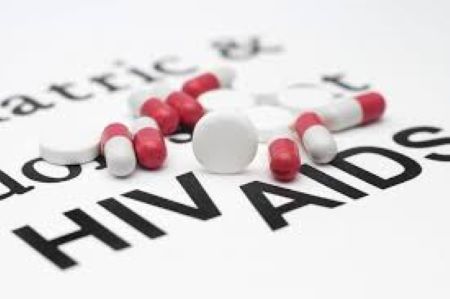Medications for HIV have many side effects and can make it challenging to continue treatment. Learn how to manage the side effects to ensure successful treatment and maintain quality of life.
Although HIV remains incurable, various medications are available to help people living with HIV live longer, healthier lives and reduce the likelihood of virus transmission.
Treatment for HIV — known as antiretroviral therapy (ART) — involves taking a combination of medications that target different parts of the viral life cycle to prevent replication of the virus in the body. These drugs can help suppress the amount of virus in the body to the point where doctors consider it under control.
However, all medications have a risk of side effects, and HIV treatments are no exception. The side effects a person experiences may vary based on the types of drugs they are taking. Most side effects due to HIV medications are mild, but some can be serious or may make it difficult to continue treatment.
According to an older studyTrusted Source involving more than 1,000 people living with HIV, the following side effects that most often led to discontinuation of treatment within the first year of ART were:
- gastrointestinal symptoms, such as nausea, vomiting, or diarrhea
- hematological effects — changes in blood cell counts
- metabolic effects, such as changes in blood sugar or lipid levels
Other possible side effects of HIV medications may include:
- weight changes
- difficulty sleeping
- dry mouth
- headaches
- rash
- dizziness or fatigue
- injection site pain, for medications given as a shot
Many of these side effects can improve after a few weeks of taking HIV medications. Additionally, people can better tolerate some newer HIV medications.
A person with HIV must take ART for life, but some side effects can affect willingness or ability to continue with treatment. Therefore, it is important to be proactive about managing these effects to help ensure treatment is successful and to preserve quality of life. The infographic below outlines seven steps a person can take to help manage the side effects of HIV medications and continue with their HIV care plan.
Before starting treatment, a healthcare professional can help set expectations for the types of side effects a person may experience based on the specific medications they are taking and the possible steps to prevent or manage these effects.
If any side effects arise, a person needs to discuss them with a healthcare professional right away to ensure they can manage them appropriately.
Some HIV medications can interact with other types of drugs, leading to additional side effects or potentially reduced efficacy. Before a person starts ART — or any new medications — it is important to make sure the prescribing physician knows all of their current medications and supplements.
Some common medications and supplements known to interact with HIV medications include:
- proton pump inhibitors or other antacids
- iron supplements
- warfarin or other blood thinners
- oral birth control
- statins
- Consider diet changes
Nausea is a common side effect of several HIV medications, including a group of drugs known as protease inhibitors, which are part of most ART combination regimens. Eating smaller meals and avoiding spicy foods can help prevent or manage nausea so that it will not be as much of an issue.
A heart-healthy diet can also help prevent complications that may develop due to metabolic or weight changes. These types of effects are common with nucleotide reverse transcriptase inhibitors, another kind of medication often part of ART combination regimens.
A registered dietitian can help ensure that a person is still getting all the nutrients they need from their diet while helping manage medication side effects.
4. Ask about supportive medications
A person can take additional medications to help manage many of the side effects of ART, such as nausea, diarrhea, or headaches. A healthcare professional can help identify supportive treatment to add to a person’s care plan to help prevent these effects.
Due to the potential risk of drug interactions, a person should not take new medications or supplements without consulting a healthcare professional.
5. Have the recommended preventive screening
Many HIV medications cause side effects that are not detectable without blood work, urine tests, or imaging. People living with HIV should have regular checkups with a primary care physician who can provide preventive screening to detect changes to their health before they cause severe complications.
Types of screening that may help detect medication side effects include:
- blood counts and chemistry, including kidney and liver functions
- urine tests
- bone scans to check for bone loss
People with HIV are at a higher riskTrusted Source for heart disease due to the viral infection itself. Heart disease may also result from the effects of ART, but newer medications pose a lower risk.
In combination with a heart-healthy diet, regular physical activity can help prevent the cardiovascular and metabolic complications of HIV and HIV treatment, such as:
- weight gain
- glucose intolerance
- diabetes
- elevated cholesterol
7. Ask about alternative HIV medications
If side effects of ART become too much to tolerate, a healthcare professional can help determine whether switching to a different ART regimen may provide relief. Treatment switching is generally not recommended unless viral levels are well-controlled and a person is not experiencing any disease-related effects.


